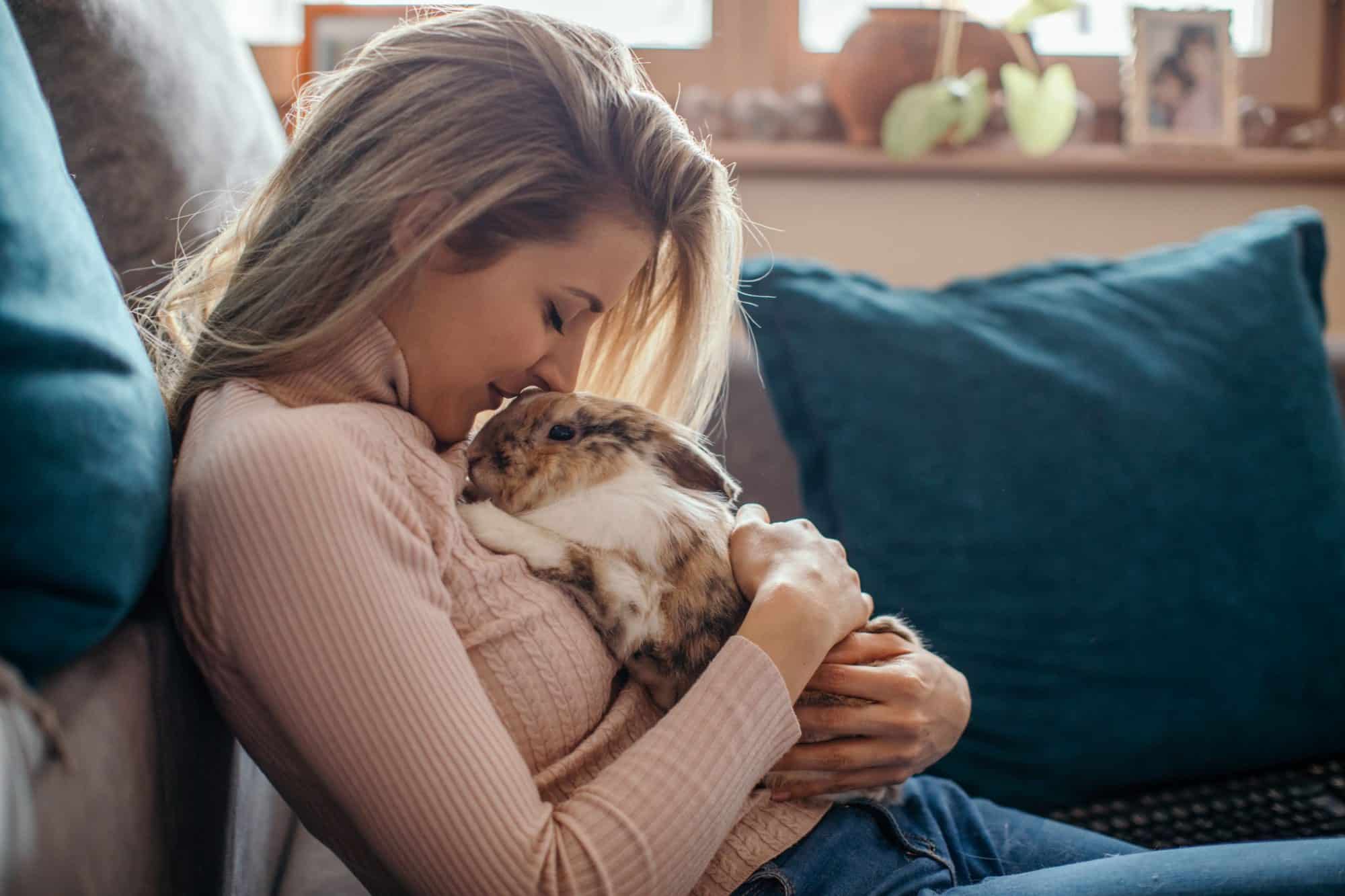Hip, Hop, Hooray for Rabbits as Pets

At Caring Paws Animal Hospital we don’t discriminate! Large or small, fluffy or sleek, calm or energetic, we love all animals. Many of our patients are dogs or cats, but we also love to see other less traditional pets like rabbits. Rabbits as pets can be a great fit for many families, if you are considering adding another four paws to your home, these furry friends are definitely worth a second glance.
Rabbits as Pets
Rabbits as pets can be a really wonderful choice, but they are not for everyone. So how do you know if a bunny would be a good option for your family?
As with any pet, doing your research and knowing what you are getting into is a big part of assessing the situation.
When it comes to bunnies as pets, consider the following:
- Rabbits require gentle handling and are not usually a great option for small children
- Prey species like rabbits are easily stressed and startled by loud noises and fast movement
- A large, rabbit-proof room is ideal so that your bunny can get exercise for at least an hour a day
- Rabbits do best in a large, indoor hutch
- A balanced diet including fresh veggies and plenty of timothy hay is important
- Rabbits require objects to chew to wear down their teeth and will need dental care
- Rabbits are most active at dawn and dusk
- Routine veterinary care and spay/neuter is recommended for bunnies
- Rabbits can live for ten years or more
Fun with Buns
Keeping a rabbit is certainly not the same as a dog or cat. Sure, they need food, water, shelter, and attention, but the similarities start to wane from there.
There are certainly some fun things to learn about bunnies. Some of our favorite facts about rabbits as pets include:
- Rabbits are lagomorphs, which means their teeth never stop growing! They need to wear them down by chewing.
- A rabbit’s eyes are positioned towards the sides of their head, allowing them to keep a large visual field as protection from predators.
- Bunnies are very social and live in groups.
- Rabbits are very smart and can be trained to use a litter box.
- Carrots are not a natural part of a bunny’s diet and too many can cause an upset tummy.
- Instead of chewing cud like a cow, rabbits produce special feces that contain a lot of undigested plant material to be ingested for a second pass.
- In one year a single female rabbit can produce up to 800 kits (baby bunnies).
- Rabbits cannot vomit.
If you do decide that a rabbit is the right choice for your family, please consider adopting one from a rescue or shelter. Small mammals are often surrendered when they don’t work out, and bringing a pet in need into your home can make the addition even more special.
When you have a less traditional pet, having a good veterinary resource who is familiar with your species of choice is invaluable. Dr. Danielson and his team are experienced with rabbits and other exotic pet species. Contact us if you have questions.

